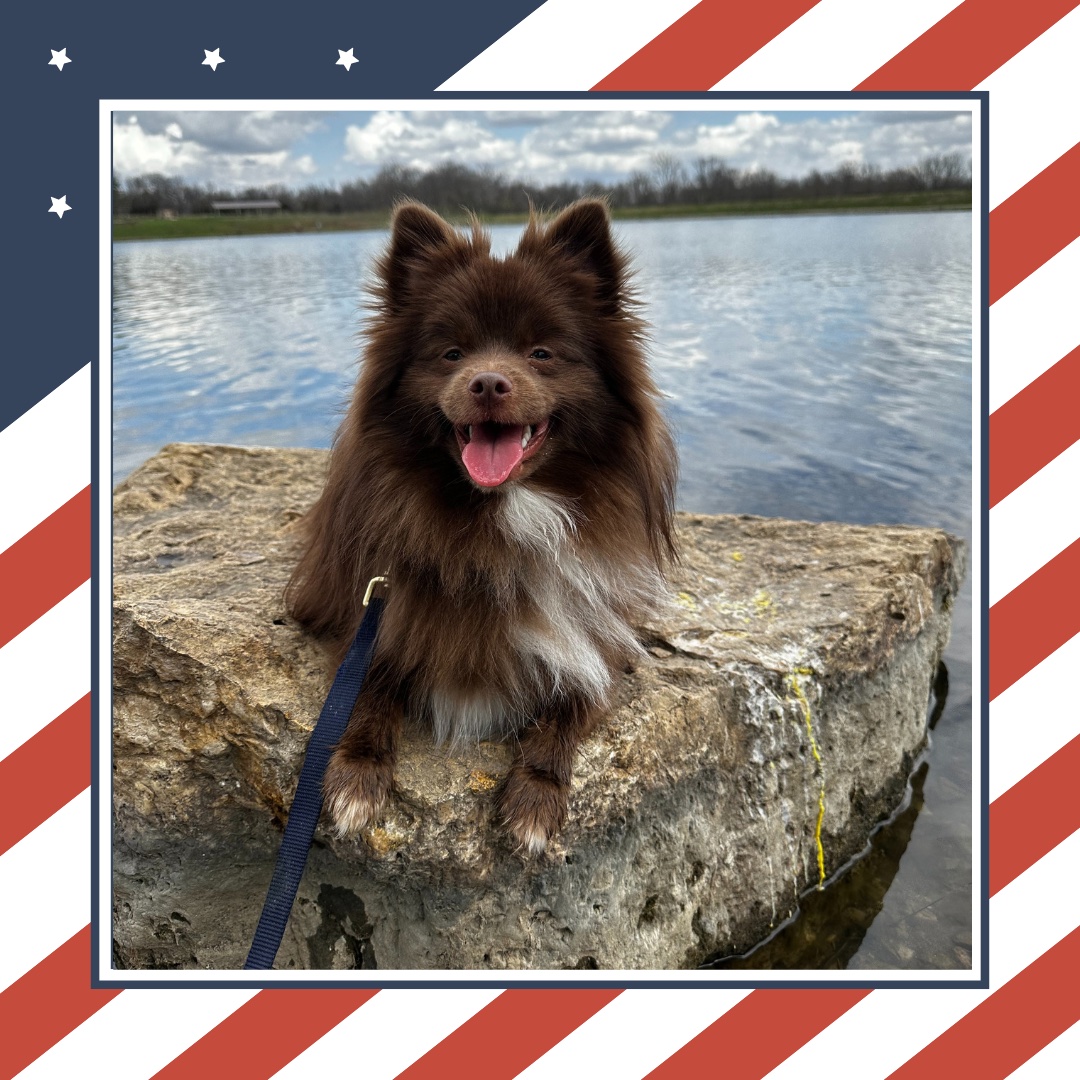 Did you know that on the 4th of July, more dogs go missing than any other day of the year?
Did you know that on the 4th of July, more dogs go missing than any other day of the year?
Dogs can hear up to four times better than humans, so if a noise is loud to you, it’s even louder for your canine pal. Additionally, research shows that at least 40% of dogs have some degree of noise-related phobias, which can make Independence Day an extremely stressful time for them.
In order to help your dog get through this, it is important to first understand and be able to identify anxious behavior in your dog. It can vary from dog to dog, but generally these are some of the most common signs:
- Shaking
- Whining/barking
- Refusing to go outside or attempting to escape
- Hiding
- Panting
- Becoming extra clingy
When dogs hear loud noises, along with the above anxiety signs, they also go into “flight or fight” mode. Basically, they become so stressed that they feel the need to either fight the scary noises, or run away from them. Since there’s nothing tangible to fight, they often resort to flight, or running away. This is why so many of them go missing on this particular day.
So, once you have identified that your dog does get anxious during fireworks, what can you do?
Stay home. The easiest way to help keep your dog safe is to just stay home with them. Taking a dog outside to enjoy barbecues or fireworks is just stressful for them, and could lead to them running away and getting lost.
Microchip your dog. While this will not prevent your dog from getting lost, it will make it *much* easier for you and your buddy to be reunited.
Give them a safe spot. Dogs often feel more secure when they have a place of their own where they feel safe. For many, this includes their kennel. If they don’t already have a place, you can make them one in a place that is cool and dark, preferably where they cannot hear the fireworks. You can even play some calming music for them.
Use a thundershirt. A thundershirt helps ease a dog's anxiety by applying gentle pressure around them. It should fit snugly, but not be too tight that they restrict movement.
Provide sound distractions. The addition of another type of distracting sounds can help reduce anxiety by limiting the effects of the other offending noise. Distracting sounds may include: fans, white noise, calming music (Classical, Jazz) and television shows which may drown out the disturbing sounds of thunder, fireworks and other loud noises.
Offer Calming supplements and Pheromone Therapy to also reduce stress. Calming supplements often consist of natural ingredients that may be beneficial in reducing anxiety and providing some sedation for stressful situations. Pheromones are natural dog hormones that can have similar effects and may be available as collars, sprays and plug in diffusers. There are a large variety of these products so please consult your veterinarian for recommendations.
Contact your vet about anxiety medication. There are times when the above tips just won’t work. In that case, we recommend that you speak to your veterinarian about anxiety medication. That being said, it is important that you have that discussion with them sooner rather than later. That way, you and your vet can figure out which medication and which dosage will work right for you and your dog.
Overall, the best way to tackle firework anxiety is to plan ahead. When a dog is already anxious, it can be very difficult to get them to calm down, so it is best to take steps to avoid the anxiety in the first place.
If the unthinkable happens, and your dog goes missing, call your veterinarian and let them know. They can keep an eye out in case anyone brings them in. Also try and post on lost pet websites and facebook groups.
